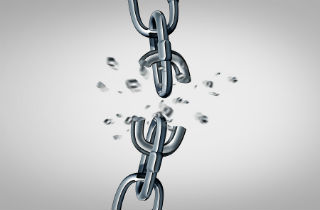I recently spoke with Dr. David Sack, a really smart man. As a psychiatrist with a history of clinical and research experience, Dr. Sack seems to know addiction: inside and out. It’s by no means an exaggeration that I think him a modern thought leader in the field of addiction treatment. So, I wanted to weigh in on the issue of the role of addiction treatment centers. Especially, seeing as how he’s in charge of one. So here’s a series of Q & A with the doc.
Residential treatment for addiction
Q: What does a typical addict look like who goes to an inpatient treatment center?
A: Most people who get referred to a residential addiction treatment program, have severe drug or alcohol problems. It’s a very high acuity population when they first come in. On top of drug addiction, they are also dealing with medical complications, severe health problems, or marriage problems. Addicts who are referred to residential treatment for addiction might also be in trouble with the legal system.
But people referred to residential treatment for addiction also experience repeated failure to reduce drug use, and/or multiple drugs of abuse…so that the group that gets to residential treatment usually has a lot of problems.
In other words, their world is crashing down around them.
This might be a different situation compared to an outpatient program. People who are treated in outpatient programs for addiction may not have an entrenched drug or alcohol use.
Holistic drug addiction treatment
Q: What is holistic drug addiction treatment?
A: About 1/2 the time, people who come into treatment for drug and alcohol addiction experience co-occuring psychiatric disorders that have preceded addiction.
During holistic treatment for drug addiction, we look at the whole person to address other problems that are concurrent with addiction: anxiety, stress tolerance, insomnia, depression, etc. This way, when we treat the “whole person”, people leave a residential treatment center in a better position to succeed in recovery. Additionally, we recommend graduating clients to a primary therapist with experience in their specific array of problems when they leave.
Treatment of addiction principles
Q: What is the role of addiction treatment centers?
A: There are two main principles that guide treatment of inpatient clients at Promises Treatment Center. These are stabilization and education.
1. Stabilization – The first step to any addiction treatment program will be to interrupt an addictive cycle. without an interruption, there is no anchor to start ongoing teatment. You have to stop the addiction process long enough to have a discussion. Medical stablization is very important, because you have to address the whole health of the addict and the self-neglect that self-neglect that occurs during active addiction.
2. Education – Next, you need to give people the tools and understanding to stay sober. In the second part of treatment, we are teaching and giving tools to help people with the feelings and behaviors related to addictions. People are not very knowledgeable about how to stop, and don’t know how to answer the question “How does addiction work?” Addicts in recovery need to begin to be pro-active to avoid situations that trigger cravings, as address anxiety and stress in real time.
Residential treatment is a good first step for addicts facing addiction, and can serve as a bridge into a sober, reocvering community. We support involvement in 12-step programs.









Related Posts